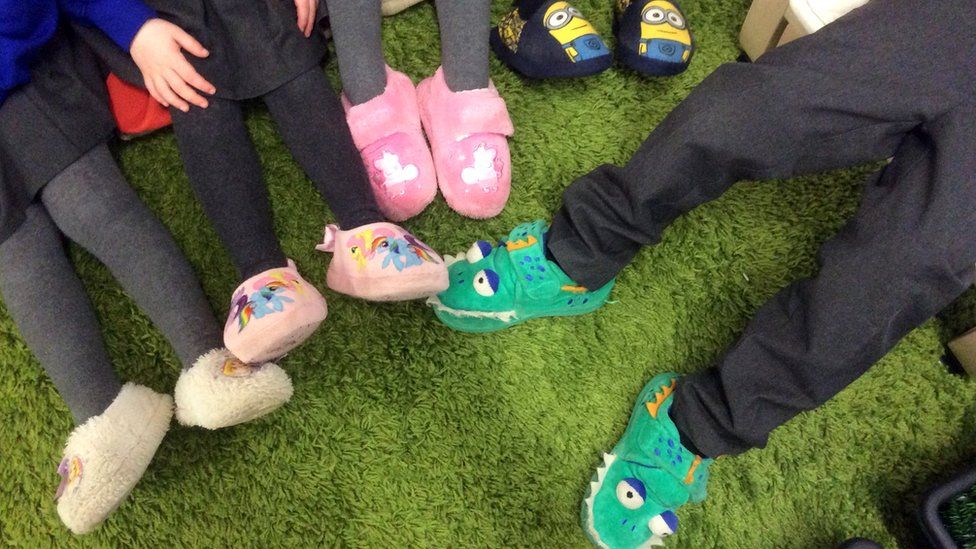Derbyshire pupils wear slippers at school to get 'better grades'
- Published

The head teacher at Findern Primary School said the slipper trial for the whole school will go on until July
A primary school has allowed its pupils to wear slippers in class after research suggested it helps them get better grades.
Findern Primary School in Derbyshire has been trialling the idea there are benefits to children's learning when in a "shoeless" environment.
Professor Stephen Heppell from Bournemouth University said he found children behaved better, external without shoes.
Findern head teacher Emma Tichener said the pupils have been "more relaxed".
'Not compulsory'
Prof Heppell researched the topic for more than 10 years in 25 countries.
Shoeless learning has been carried out in schools in Scandinavia and New Zealand and learning centres in other countries.
Mrs Tichener said: "We are noticing that the children seem more relaxed and calmer than usual," she said.
"We hope that in time we can measure their progress and see if it has made a difference in their achievements.
"We are looking for different ideas to improve the experience for our students so if this works then it might become a more permanent."
Mrs Titchener added that the approach was "only about enhancing" the pupils learning and "not a compulsory part" of the school's uniform policy.
Why go shoeless in school?
Children seem to behave gentler and bullying is reduced
Noise is reduced
It's more hygienic - carpets are cleaner and reduced wear and tear on furniture.
Children are more willing to sit on floors and soft furnishings creating more space for collaboration, presentation, role play
Teachers do not end up in conflict about the "right kind" of shoes
West Thornton Primary Academy, in Croydon, Surrey has several shoeless zones around the school.
Teacher Ayla Arli said the children "felt more comfortable so results went up".
"We've definitely seen a change in behaviour," she said.
"Behaviour is much calmer in the learning zones, the noise levels have gone down.
"It was their idea, they had to present the data back to us to prove that this is not just a gimmick, this actually has an impact on learning."
Shoeless children at the TK park learning centre in Bangkok
At the TK Park the shoes are exchanged for floor cushions
- Published20 October 2016
- Published8 May 2014